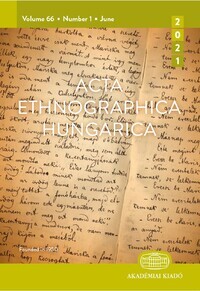The “Re-Tuning” of János Arany's Life and Work in the Popular Education of the 1950s
The “Re-Tuning” of János Arany's Life and Work in the Popular Education of the 1950s
Author(s): Ágnes EitlerSubject(s): Cultural history, Post-War period (1950 - 1989)
Published by: Akadémiai Kiadó
Keywords: János Arany; socialism; popular education; cultural revolution; political propaganda
Summary/Abstract: In 1948, in the year it came to power, the Hungarian Communist Party began building its legitimacy, using the occasion of the centenary, by appropriating the legacy of the Revolution of 1848. The need for a revolutionary transformation of culture heralded the advent of the scientific materialist worldview. The popular education system, created as a channel of the cultural revolution, conveyed the findings of the various branches of science and arts, combined with the rhetoric of political propaganda, to the “working people.” Revolutionism, which the Marxist view of history elevated to prominence, soon gained ground in the interpretation of Hungarian literary history via the compilation of “progressive literary traditions.” Public educators' literary presentations in villages and cities, as well as articles and cheap publications produced in large quantities all served to promote this central principle. The author examines the representation and interpretation of János Arany's life and work in various textual and visual popular education products. Certain junctures and directions in Arany's life, used as guidelines of the presentations, were highlighted in the image of Arany mediated by filmstrips and newspaper articles to make him one of the “poets of freedom.” Publications intended for the cultural and political education of “working people” set out the way in which to relate to the poet and the framework for interpreting his writings. Through the Arany poems that popular educators employed in scientific education, the author points out the way in which textual and visual representations became carriers of added content in a given context and a possible means of the “rural class struggle.”
Journal: Acta Ethnographica Hungarica
- Issue Year: 66/2021
- Issue No: 1
- Page Range: 97-117
- Page Count: 21
- Language: English

